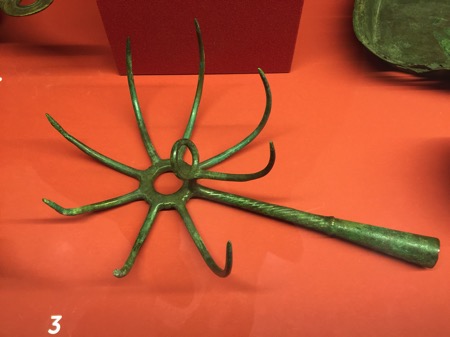- Faba beans came before cereals in Galilee.
- Wine is not quite so old in Georgia, but still pretty old. But will they be able to genotype it?
- South Africa is a cattle melting pot.
- Getting improved wheat out there in Ethiopia.
- These seeds are definitely ready for their close-ups.
- Speaking of close-ups: Amy Goldman has a new book out.
- First forage clover genome. More and more difficult to think of firsts.
Brainfood: Honeybee miscegenation, Cowpea shoots & leaves, Iberian goats, CIP fingerprinting, Seed networks, Early rice, Date palm genome, Pollinator services, Bananapocalypse
- Population structure of honey bees in the Carpathian Basin (Hungary) confirms introgression from surrounding subspecies. The Hungarian honeybee is holding its own. For now.
- Genetic Variability and Heritability Estimates of Nutritional Composition in the Leaves of Selected Cowpea Genotypes [Vigna unguiculata (L.) Walp.]. Something else you can breed for.
- The Southwestern fringe of Europe as an important reservoir of caprine biodiversity. Local goat breeds in Spain and Portugal have few numbers, but much diversity, though in general weakly structured.
- Are you getting what you ordered from your genebank? Fingerprinting of the clonal potato and sweetpotato collections at the International Potato Center. Ahem. Maybe not.
- Seed exchange networks and food system resilience in the United States. Let my seeds go!
- Barnyard grasses were processed with rice around 10000 years ago. Rice had to fight it out with other wetland grasses to get domesticated.
- Whole genome re-sequencing of date palms yields insights into diversification of a fruit tree crop. Independent history in North Africa and the Middle East, but unclear if because of separate domestications or migration westward and introgression with local wild populations. Fruit colour genes the same as in oil palm.
- Pollinator conservation — The difference between managing for pollination services and preserving pollinator diversity. The point is that there’s a difference.
- Worse Comes to Worst: Bananas and Panama Disease—When Plant and Pathogen Clones Meet. TR4 is a single clone.
Nibbles: CC & crop diversity, Agrobiodiversity newsletter, Foley blog, Heirloom pepper, ITPGRFA PPT, Gobble gobble, Ancient DNA, Sunflower relatives, Leafy greens
- FAO has guidelines for making sure climate adaptation plans include crop diversity.
- A new agricultural biodiversity newsletter for your reading pleasure.
- And a new blog of global sustainability issues from Jonathan Foley.
- The Beaver Dam pepper back from the brink.
- Nice set of slides summarizing the Plant Treaty.
- The traditional Thanksgiving save-heirloom-turkeys story.
- Farming changed people.
- Crop elders?
- Women speak out about traditional African veggies.
How was this harpago used?
I finally got to see the Feeding the Empire exhibit at the Ara Pacis in Rome on Saturday, and learned a lot about how Rome managed to keep a million people fed most of the time. In one of the display cases, I saw this astonishing implement.

It was labelled simply Harpago. No explanation, nothing. The word seems to be linked to harpoon, and is translated as “grappling iron” in some places. It also shows up “in insect morphology for the distal end of a genital clasper” and lends its name to spiny sea snails and a plant commonly known as Devil’s claw, Harpagophytum spp.
All of which makes perfect sense. But what on earth does it have to do with the preparation of food?
Nibbles: Tomato breeding, Cacao phylogeny, Moroccan fig landraces, Filipino homegardens, Neolithic honey, LandMark, I say queso
- Breeding for organic tomatoes needs to be participatory.
- Theobroma cacao is the oldest species within the genus.
- Threatened local fig varieties being promoted in Morocco.
- Teach a fisherman to garden…
- Neolithic people were consuming honey early, but not in the north of Europe.
- Interactive map showing lands managed by native communities.
- The oldest surviving document in spanish is a list of cheeses.